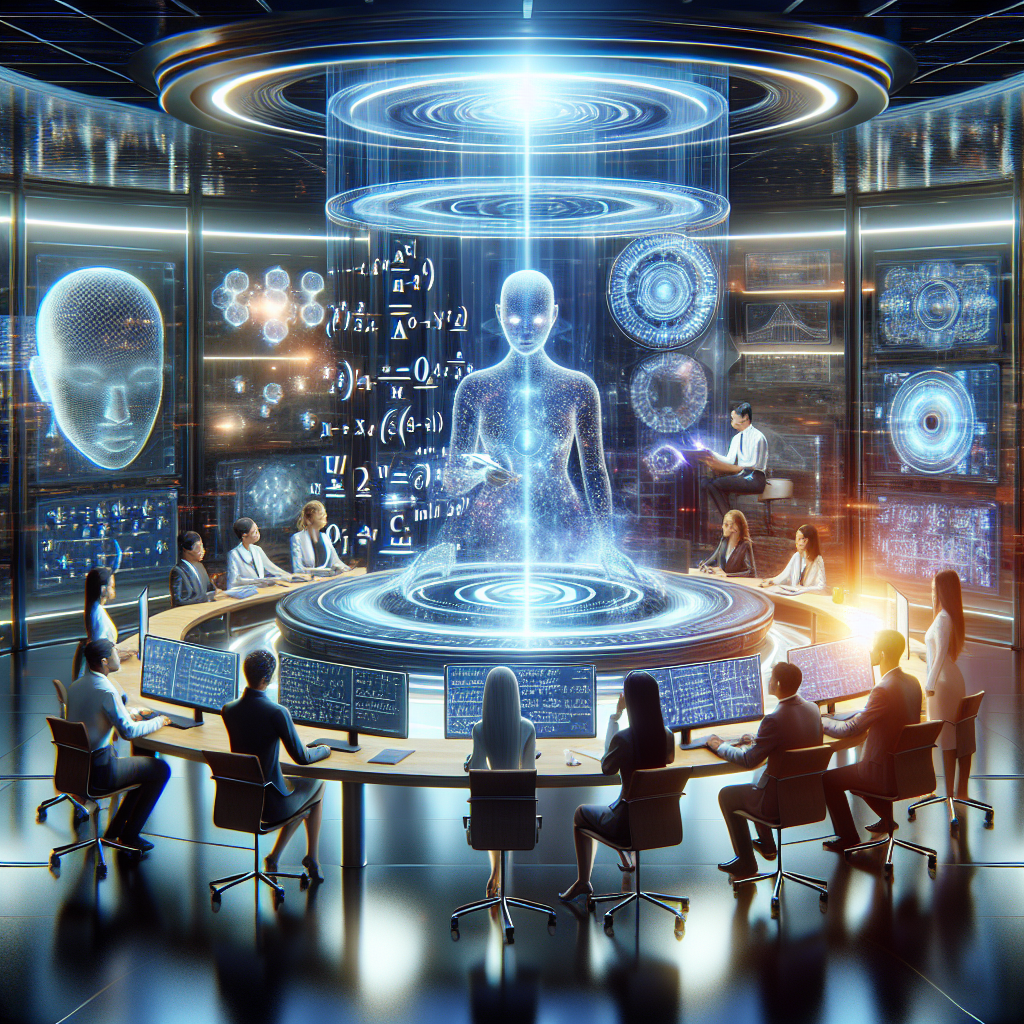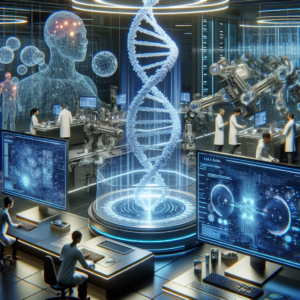DeepMind AI Crushes Tough Maths Problems on Par with Top Human Solvers
In a groundbreaking development, researchers at DeepMind have unveiled an advanced artificial intelligence (AI) system that exhibits extraordinary capabilities in mathematics. This AI model has demonstrated the ability to solve complex mathematical problems with a level of proficiency that rivals the skills of the top human mathematicians. As the boundary between human intellect and artificial intelligence continues to blur, the implications of this technology are vast and varied.
The Rise of AI in Mathematical Problem Solving
Mathematics has long been regarded as one of the most challenging fields for machines to master. The reasoning, abstraction, and creativity involved in solving mathematical problems require cognitive skills that have traditionally been exclusive to humans. However, recent advancements in machine learning and neural networks have paved the way for AI systems to tackle mathematical challenges in unprecedented ways.
DeepMind’s AI is built upon an innovative framework that leverages deep learning algorithms to analyze and solve equations. By training on a vast dataset of mathematical problems, the AI model has honed its skills to not just find solutions but to understand the underlying principles that govern these problems.
How DeepMind’s AI Works
The architecture of DeepMind’s AI draws from several advanced techniques in machine learning, primarily focusing on reinforcement learning and transformer models. By utilizing massive amounts of data, the AI can learn patterns and relationships within mathematical concepts. This allows it to not only solve problems but also to generate new mathematical insights.
This AI system employs a multi-stage problem-solving approach. Initially, it processes the given mathematical problem to comprehend its structure and requirements. Following this, the model generates potential solutions while evaluating each step using its learned knowledge base. This iterative process continues until the AI arrives at a conclusive answer.
Performance Comparison: AI vs. Human Solvers
In rigorous tests, DeepMind’s AI has been benchmarked against proficient human mathematicians in various domains of mathematics, including algebra, calculus, and number theory. The results are striking: the AI has achieved a success rate comparable to that of top human solvers. This performance not only highlights the capabilities of AI but also raises questions about the future roles of human mathematicians in research and education.
One of the most compelling aspects of this AI is its ability to tackle problems that require creative and abstract thinking—a skill that has been historically difficult for machines to attain. The AI’s solutions often mirror those of top human thinkers, indicating that it can navigate the complexities of mathematics much like a human would.
The Implications for Education and Research
The introduction of such powerful AI tools could revolutionize the fields of mathematics education and research. In educational settings, AI could serve as a personalized tutor, offering tailored problem-solving strategies and instant feedback to students. This could enhance learning outcomes, particularly for those struggling with traditional methods of instruction.
In research, the collaboration between human mathematicians and AI could open new frontiers. AI can quickly analyze vast datasets and identify patterns that may go unnoticed by human researchers, potentially leading to breakthroughs in various scientific fields. The combined efforts of AI and human intellect may accelerate the pace of discovery in mathematics and beyond.
Ethical Considerations and Challenges
Despite the remarkable advancements, the rise of AI in mathematics also brings forth ethical considerations. As AI becomes more integrated into academic and research environments, concerns about academic integrity and the authenticity of mathematical contributions emerge. The reliance on AI for solving problems could lead to a devaluation of human skills and expertise in mathematics.
Moreover, there is the potential for misuse of AI technology. As with any powerful tool, it is crucial to establish safeguards to prevent unethical applications, such as using AI to manipulate data or generate misleading results.
Conclusion: The Future of AI in Mathematics
DeepMind’s achievement in developing an AI that can solve complex mathematics problems on par with top human solvers marks a significant milestone in the intersection of artificial intelligence and human knowledge. As this technology continues to evolve, it has the potential to reshape not only mathematics but also various fields that rely heavily on mathematical principles.
As we stand on the brink of a new era in mathematical exploration, the collaboration between AI and human intellect will be crucial. Embracing this technology while navigating the ethical landscape will ensure that the benefits of AI in mathematics are harnessed for the greater good. Future developments in AI hold promising potential, and the journey ahead could redefine our understanding of mathematical problem-solving.
In conclusion, DeepMind’s AI is not just a tool but a partner in exploration, paving the way for innovative approaches to some of humanity’s most pressing mathematical challenges. We can only imagine the possibilities that lie ahead as we continue to push the boundaries of what AI can achieve in the realm of mathematics and beyond.



